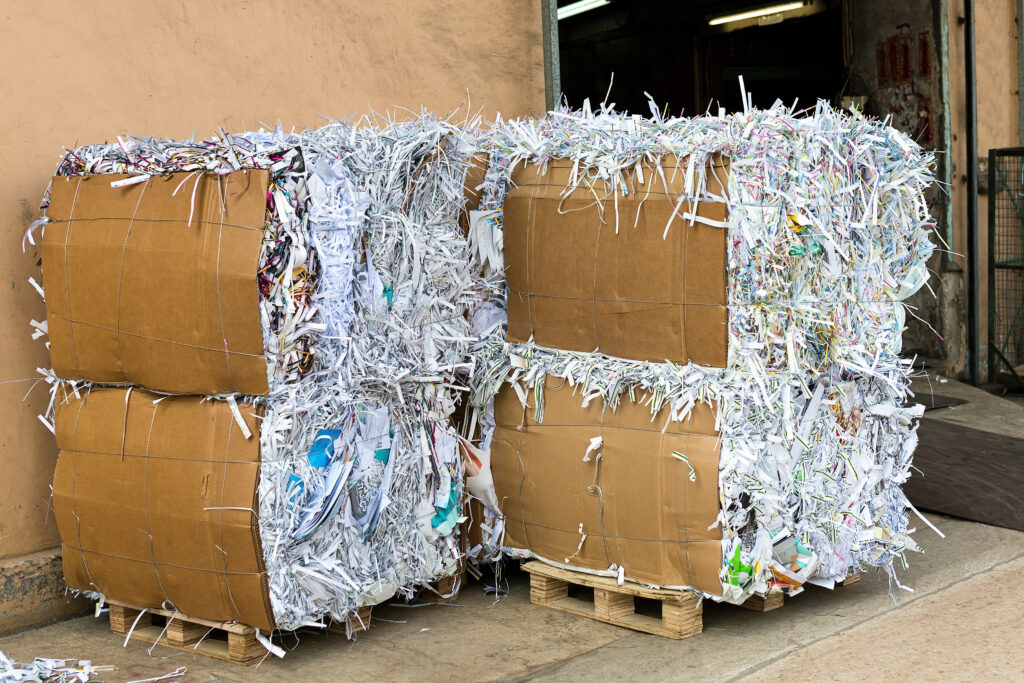Baltic Control, the inspection agency for the Indonesian Ministry for Environment and its customs authority, has advised that from 23 November it will not being carrying out inspections “until further notice”.

Consequently, the export of used cardboard and mixed paper to Indonesia is expected to come to a halt. The country has become much more significant as a destination market for the UK and other western nations recently because of restrictions on material into China.
The move comes amid a range of concerns in Indonesia, including that exporters around the world may be getting material into the country via smaller vessels from larger ships docking in ports such as Singapore. And, the Indonesian government is continuing to crack down on illegal imports of waste; on the quality of paper bales, particularly in terms of moisture content; as well as reviewing shipments of plastics in terms of quality and destination within the country.
At the end of October, Indonesian authorities said that 374 containers had been returned to countries of origin, including France, Germany, the Netherlands, Slovenia, Belgium, Britain, New Zealand, Australia, America, Spain, Canada, Hong Kong, and Japan. Plastics mixed with waste are of high concern to Indonesia.
However, there is optimism that inspections will start again at some point in the next few months. Previously, Indonesia has indicated that it may work in steps to reach a similar level applied by China of allowing only 0.5% other materials in paper loads. This could see a target of 2% for part of 2020, then reducing to 1.5% or less.
Slump
Even before the Indonesian announcement, UK paper recyclers had expressed alarm at the slump in market prices, especially on the export marked for used cardboard and mixed papers. Prices for mid-grades and newspapers have also reduced a little but the big downturn is impacting on cardboard and mixed papers.
One expert commented that the situation was the “worst since the late 1990s and makes the downturn in the 2008 recession seem just a blip – then prices fell in October but recovered within a few months”, they said.
The root cause of the decline in pricing is seen as China’s gradually reduction in imports, with the country due to halt imports of waste paper altogether at the end of next year. Ironically, there is strong demand within China for domestic material, because of the import restrictions, and domestic prices are said to be rising.
Some in the sector question whether China is conforming to World Trade Organization rules in that mills may be taking in poorer quality material from the domestic market in China, contrary to the high quality rules which are being set for the import of paper from other nations, including the UK.
However, any early resolutions of such a claim is seen as very unlikely.
Relationships ‘strained’
On the UK front, one trader likened the situation as a “patient on the way to intensive care, material has been moving but it will soon become very hard to move”.
He added: “Lots of relationships are going to be strained between individuals and paper mills, and when it all calms down we could see different arrangements in place.”

December is being seen as a pinch point because of the annual huge increase, 30% or more, of volumes of cardboard arising at retail outlets and distribution centres, with concerns that material will back-up.
India may provide an outlet for some extra tonnage but it is expected that prices will be very low for cardboard making margins hard to achieve without charges being paid for collections. That is seen as causing a problem in its own right as contracts may need adjusting and some contracts may also guarantee collection when the collector has no outlet.
Financials
On the export front, financial arrangements with India are also a complicating factor with businesses grappling with how to deal with a market where the cost of shipping and paperwork may be higher than the amount paid for material.
Solutions for the UK market in December are unclear. And, in terms of material not being collected because of nowhere for it to go, one collector said: “we could see people being sued, but what would that achieve?”
One waste manager suggested that poor quality paper and mixed plastics might be used as an SRF fuel which could command gate fees of £60-70 in contrast to landfilling which would cost more than £100 per tonne.
However, the overall view is that the market will have to resolve the situation by using UK mills, although they are well-stocked, and through exports subsidised by some producers paying a level of collection charge.
Positive
“The last thing we need is for Brexit to disrupt flows into Europe, it could cause a few more months of pain”
In the New Year, arisings from the retail sector will reduce sharply and some in the paper sector have told letsrecycle.com that if December’s challenges can be overcome, it could be that the market will calm down by March and that prices stabilise. Added to this positive view, is the likely issuing of quotas in December by China for tonnage to be delivered in the New Year. However, other nations including the US and Japan will be readying themselves to deliver into China and the UK will face stiff competition.
One other factor on the down side in the New Year, raised by a number of paper recyclers with letsrecycle.com, is that Brexit is still scheduled to happen by January 31, (subject to the General Election result). One merchant said: “The last thing we need is for Brexit to disrupt flows into Europe, it could cause a few more months of pain”.











Subscribe for free